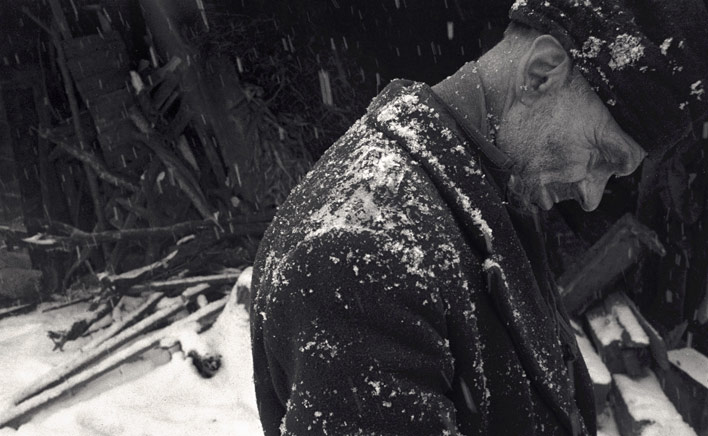
One of the truly unstable territories of modern politics is related to the frontiers of Eastern Europe. Successive wars, invasions, and political regimes have challenged autochthonous identities, defying physical and imaginary boundaries. The Czech director Jana Ševčíková is one of the most attentive voices that speak of these phenomena, through her poetic documentaries, which analyze the contradictions and paradoxes that these situations have imposed. Since 1981, while attending the famous film school FAMU in Prague, the filmmaker has made seven documentary films, in which she looks at different communities, getting involved in their ways of life and their rituals. Among them are Armenians, Slovaks, Ruthenians, Romanians, and the hybrid identities that form among these nationalities.
Jana Ševčíková's films have several characteristics in common: they are made from an ethnographic gesture, since the filmmaker spends several years within the communities she portrays, absorbing the rituals or characters that stand out. This ethnography is here treated poetically in terms of its cinematography, by working image and sound creatively, juxtaposing specific sounds with images of landscapes or the faces of the community. This inventive use of sound and image allows a necessary sensoriality of the community, since it is not only by a passive observation that we see it, but also by the ability to summon different elements to a multiplicity of signs of reality. This method raises a poetic apprehension of the real, because it makes all the shots of the film equivalent: both those that are more explanatory (especially through testimonies of members of the community) and those that are more abstract (especially those of atmospheric landscapes).
The landscape of Jana Ševčíková's films is often bleak. We feel the palpable cold of the winters, filled with the white blankets of snow. This devastation is shared with the communities, since there are always elements lacking, that is, there is a dislocation of identity in these people, who do not seem to belong to the place. Of course, this becomes obvious also by the specific choice of communities that have been forced to emigrate or have suffered profound traumas, which leads the filmmaker to look for a certain marginal society, made by groups - ethnic, religious, social - that, in a way, were abandoned by development policies. In this sense, the films of Jana Ševčíková are deeply political, giving a voice to those who have been forgotten.
The truth is that the communities portrayed are not at all the easiest. In some of them a kind of religious or social fundamentalism is even foreseen which places the viewer in an ambivalent position. But there is, in the same gesture, a profound humanity of the portrait, which gives us a clear and sometimes tender look on those characters. These are the communities that will be seen in this retrospective of the filmmaker: in Jakub, we have a story of a dead man and the contradictions that the community itself reveals in relation to this tragedy; in Old Believers, there is a portrait of a deeply religious group with ancestral (and sometimes violent) practices, but for which the filmmaker looks with a certain empathy; in Lean to Ladder against Heaven, Jana presents men that are desperate for a salvation and who, despite their obsessions, are as human as we are.
Jana Ševčíková's films show us how human we are, too human. They show the political contradictions of historical development, especially in a region, that of Eastern Europe, which has continuously undergone a redefinition of borders and identities. The gesture of the filmmaker is a gesture that returns a certain dignity to these forgotten communities, doing it through a poetic cinematography. Even after watching the films, the sounds of the bells and prayers last; trees blown away by the weather; the aged human faces; the solitary singing of a lady, in the same litany she had learned as a child. These are films in which the world looks at us in its double condition of horror and beauty.
Filmmakers Lucien Castaing-Taylor and Véréna Paravel (SEL) have chosen the Czech filmmaker as part of their carte blanche and as a way of presenting sensory cinema in European filmmaking practice.